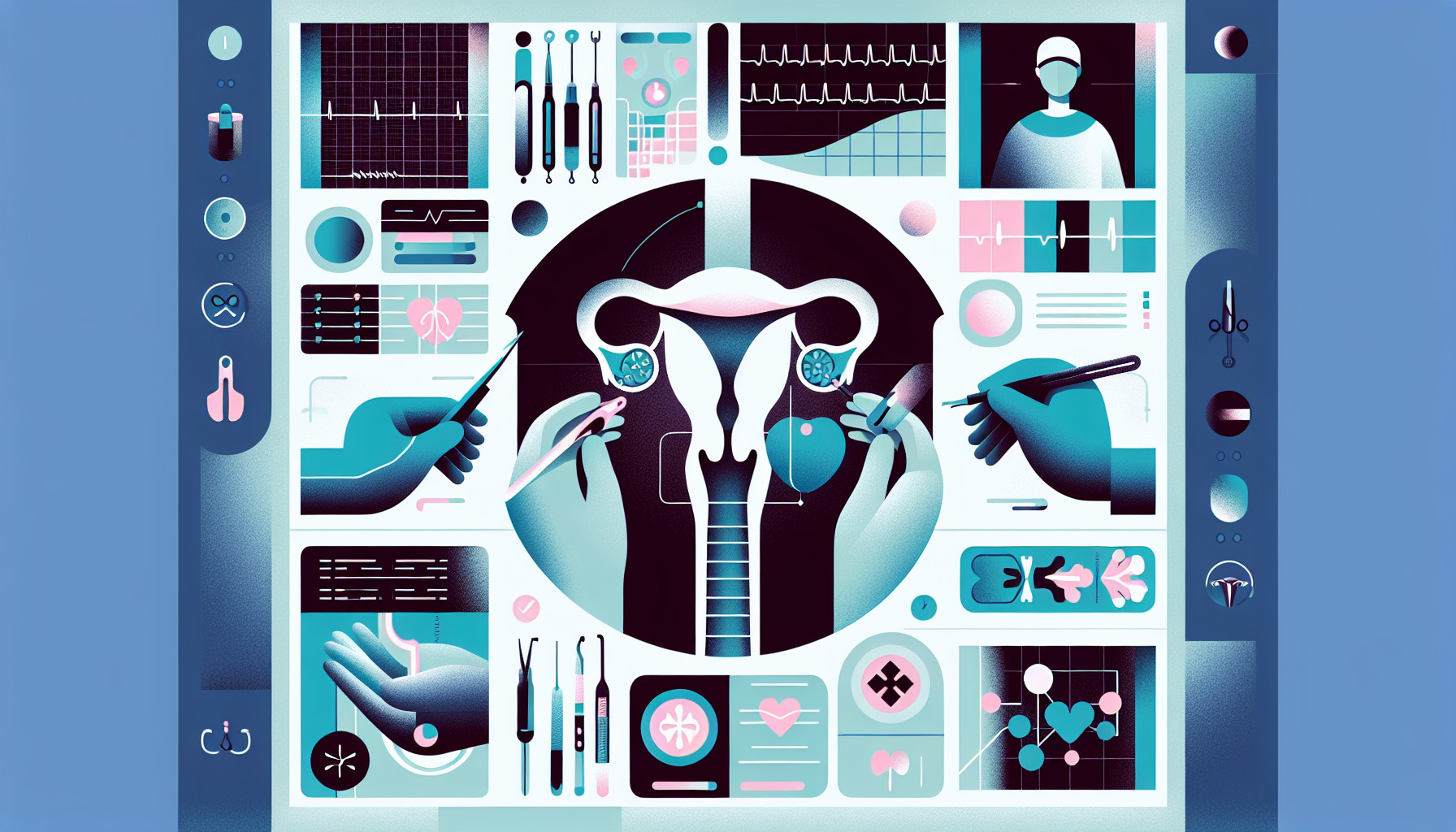Our Summary
This research paper is a review and analysis of 12 previous studies (with a total of 2773 women) that compared the quality of life in women who had undergone either a hysteroscopic endometrial resection (ER)/global endometrial ablation (GEA) or a hysterectomy to treat heavy menstrual bleeding. The study found that women who had ER/GEA treatments had a lower quality of life score in terms of general health perception, social function, emotional role limitation, and vitality compared to those who had a hysterectomy. However, anxiety, depression scores, and complication rates were similar between the two treatments. The study concluded that while women’s perception of quality of life might be less improved after ER/GEA rather than hysterectomy, this needs to be confirmed by further studies as many of the studies reviewed were outdated and there have been recent improvements in the instruments and techniques used for ER/GEA.
FAQs
- What was the main finding of this review and analysis of 12 studies on endometrial resection and hysterectomy treatments?
- Are there any differences in anxiety, depression scores, and complication rates between women who had ER/GEA treatments and those who had a hysterectomy?
- What was the conclusion of the study regarding the quality of life of women who had ER/GEA treatments compared to those who had a hysterectomy?
Doctor’s Tip
A helpful tip a doctor might tell a patient about endometrial ablation is to discuss with them the potential impact on their quality of life compared to other treatment options, such as a hysterectomy. It is important for the patient to understand that while endometrial ablation may be a less invasive option for treating heavy menstrual bleeding, it may not necessarily lead to the same improvements in quality of life as a hysterectomy. Patients should also be informed about the potential risks and benefits of each treatment option so they can make an informed decision that aligns with their personal preferences and goals.
Suitable For
Patients who are typically recommended for endometrial ablation include those who suffer from heavy menstrual bleeding (menorrhagia) that has not responded to other treatments such as medication or hormonal therapy. Endometrial ablation is often recommended for women who have completed their childbearing years and do not wish to undergo a hysterectomy. Additionally, patients with certain medical conditions that make them poor candidates for surgery may also be recommended for endometrial ablation. It is important for patients to discuss their individual medical history and treatment options with their healthcare provider to determine if endometrial ablation is the right choice for them.
Timeline
Before endometrial ablation:
- Patient experiences heavy menstrual bleeding, which may lead to anemia, fatigue, and other symptoms.
- Patient may have tried other treatments such as medications or hormonal therapy without success.
- Patient consults with a healthcare provider to discuss the option of endometrial ablation as a treatment for heavy menstrual bleeding.
After endometrial ablation:
- Patient undergoes the endometrial ablation procedure, which is typically performed as an outpatient procedure and does not require a hospital stay.
- Patient may experience some cramping, spotting, or discharge in the days following the procedure.
- Patient may have a follow-up appointment with their healthcare provider to monitor their recovery and discuss any concerns or side effects.
- Patient experiences a reduction in menstrual bleeding, with many women reporting lighter or no periods after endometrial ablation.
- Patient may experience improvements in quality of life due to the reduction in heavy menstrual bleeding and associated symptoms.
What to Ask Your Doctor
- What are the potential risks and complications associated with endometrial ablation?
- How long does the procedure typically take and what is the recovery time?
- Will endometrial ablation affect my fertility or ability to have children in the future?
- Are there any long-term effects of endometrial ablation that I should be aware of?
- How successful is endometrial ablation in treating heavy menstrual bleeding?
- Will I still need to use contraception after undergoing endometrial ablation?
- Are there any alternative treatments or procedures that I should consider before choosing endometrial ablation?
- How often will I need to follow up with you after the procedure?
- What can I expect in terms of pain or discomfort during and after the procedure?
- How can I best prepare for endometrial ablation, both physically and emotionally?
Reference
Authors: Vitale SG, Riemma G, Mikuš M, Carugno J, Torella M, Reyes-Muñoz E, Cela V, Perez Medina T, Della Corte L, Pacheco LA, Haimovich S, De Franciscis P, Angioni S. Journal: Medicina (Kaunas). 2022 Nov 17;58(11):1664. doi: 10.3390/medicina58111664. PMID: 36422203
